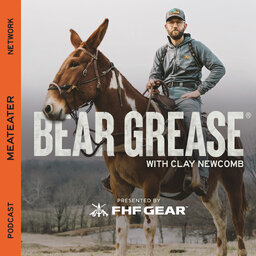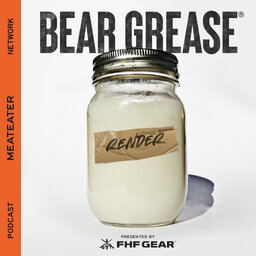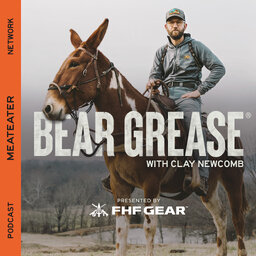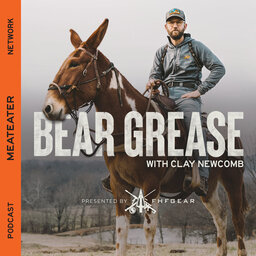Ep 37: Bear Grease [Render] - Waterfowlers, AGFC Director, and Guarding the Gate
On this episode of the Bear Grease Render, the crew is joined by the director of the Arkansas Game and Fish Commission, Austin Booth and the waterfowl biologist for the state of Arkansas, Luke Naylor. Both of these guys were on the last Bear Grease podcast but came in to discuss waterfowl hunting and the agency's plan to become more accessible to people. Austin is a marine,a lawyer and public land duck hunter and is hoping to bring some change to the agency. He talks about the unique public meetings they've been having regarding the Green Tree Reservoir issues in Arkansas and we talk some more about the culture of waterfowl hunting. Aside from an intriguing conversation about footwear, the Render begins with a stand alone section by Clay regarding the recent attacks on hunting and what we can do. You'll enjoy this one!
Connect with Clay and MeatEater
Clay on Instagram
MeatEater on Instagram, Facebook, Twitter, and Youtube
Shop Bear Grease Merch
Learn more about your ad-choices at https://www.iheartpodcastnetwork.com
In 1 playlist(s)
Bear Grease
Home to the Bear Grease podcast and Bear Grease Render show with Clay Newcomb, and This Country Life…Social links
Follow podcast
Recent clips

Ep. 410: Ty Evans - Transformative Mulemanship and Free Agency
51:16

Ep. 408: Render - Real Talk About Men's Health
1:21:04

Ep. 405: Revisiting Jerry Clower
1:04:38
 Bear Grease
Bear Grease